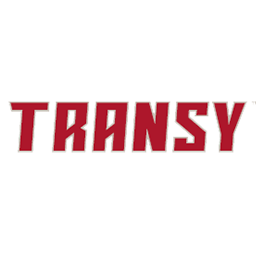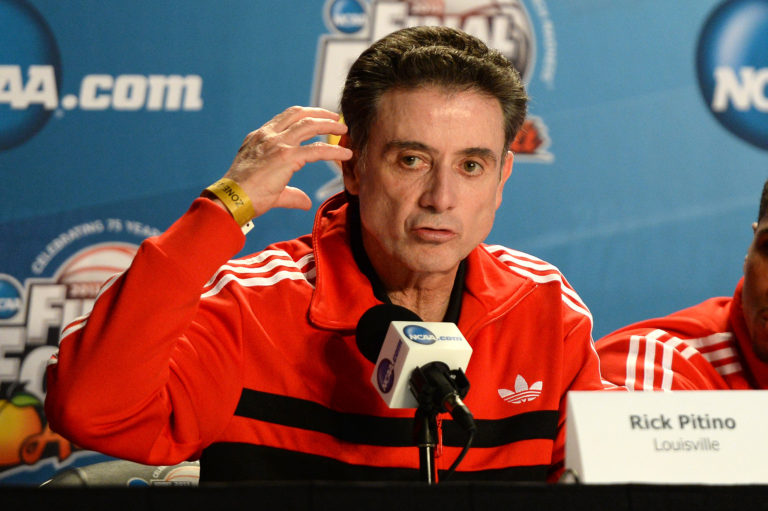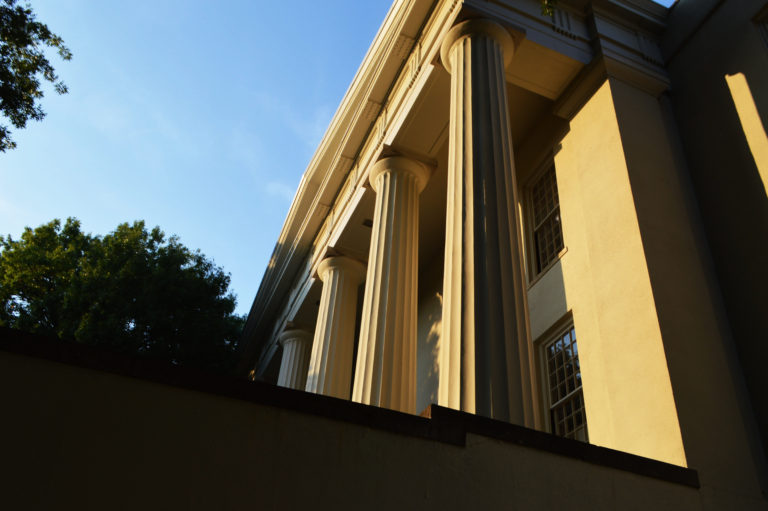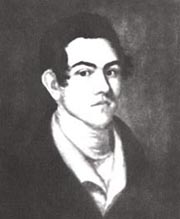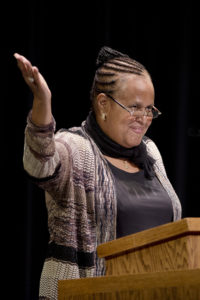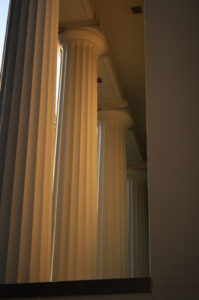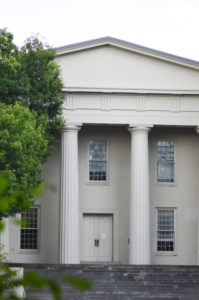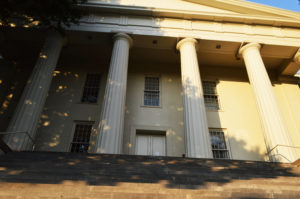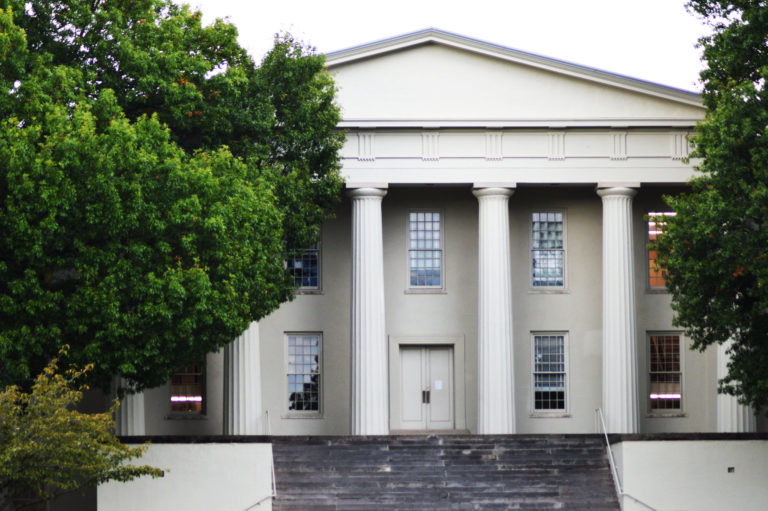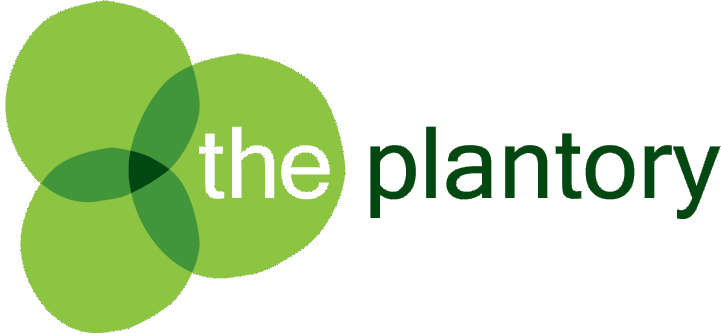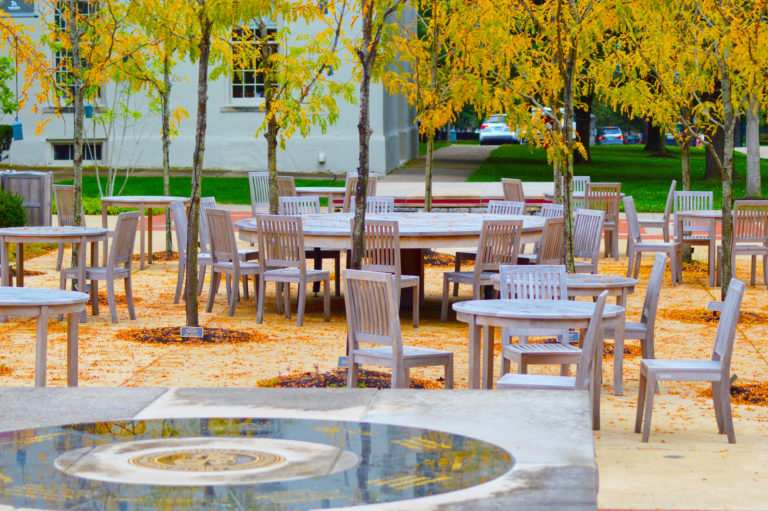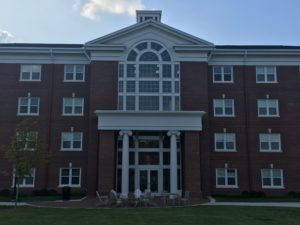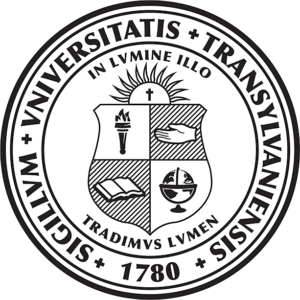Women’s Volleyball
Women’s Volleyball entered October with an overall record of 10-6. The first match of the month was at home against Hanover on Oct. 4. The Hanover Panthers took the first two sets and were prepared to take the third, but Transy fought back to take the third set with a score of 28-26. Using this momentum, the Pioneers took the fourth set, tying the match at two sets apiece. In the final set, Transy took an early lead, but Hanover would come back and take the match, with some controversial calls, including the final point. The match ended 3-2 in favor of Hanover.
The next match was an away game on Oct. 7 against Anderson University. The first two sets were taken by the Pioneers. However, the Ravens fought back in the third set, tying at 22-22, 23-23 and 24-24 before Transy was able to score the next two points. Transy would take the match with a final score of 3-0.
The next day, the Women’s Volleyball team traveled to Manchester University to take on the Spartans. The Pioneers would take the first set easily. However, the Spartans would respond, fighting back to take the second set. Showing they could not be beaten so easily, Transy would take the third set with a vicious 25-12. This momentum would carry through to the last set where the Pioneers would take the final set, and the match, with an ending match score of 3-1.
The next home Women’s Volleyball game will be a doubleheader on Friday, Oct. 13 at 4:00 pm and 8:00 pm.
Women’s Tennis
Going into the month of October, the Women’s Tennis team held an overall record of 3-4. The first match of the month was against Franklin at home on Oct. 1. In singles play, both Lucy Herrington, sophomore, and Anna Burch, first-year, picked up wins. In a doubles match Herrington and teammate Kearstin Bruther, junior, picked up a win, ending the match with a combined score of 6-3 in favor of Franklin.
On Oct. 4, the Pioneers would face-off against the Hanover Panthers in an away match. Despite a hard-fought battle in doubles action, all three pairs would fall to Hanover. In singles, Herrington came back after falling in the first set to win the next two, earning the only point for Transy that day as the day closed with a score of 8-1.
This trend was discontinued on Oct. 7, as the Pioneers faced off against Defiance on the road. In doubles, the team of Herrington and Bruther took their match with a score of 8-3. The team of Burch and sophomore Merrick Irwin would sweep their opponents with a score of 8-0. In addition to senior Lilian Williams, Herrington, Bruther, Burch, and Irwin also won their singles matches. These wins would account for a final score of 7-2 for Transy.
The next home Women’s Tennis game will be Senior Day, celebrating Williams and fellow senior teammates Mary Grace Amato and Myriah Porter, on Thursday, Oct. 12 at 3:00 pm.
Women’s Soccer
The Women’s Soccer team came into the month of October with an overall record of 3-5-2. The first match for the month came on Oct. 5 against Mount St. Joseph. The game started with an evenly matched fight until the Lions scored two quick goals at the end of the half. Going into the second half of the game, they continued their offensive attack, pushing their lead to 4-0. Transylvania would fight back as senior Morgan Janes scored the first Transy goal of the night late in the second half. Mirroring the first half, the Pioneers came back with a second quick goal by junior Bailey Browning. The late push would not be enough to overcome the Lions though, as the game ended with a final score of 4-2 to Mount. St. Joseph.
The next game of the month saw the Pioneers against the Defiance College Yellow Jackets on the road. The game would go back and forth during the first half of play, leaving the score at 0-0 going into halftime. Transy was first to find the back of the net early in the second half when Browning scored the first goal of the game. A little over two minutes later, first-year Casey Hite scored another goal. This would be the final goal of the game, as it would end 2-0 in favor of Transy, with junior Goalkeeper Haley Blackburn picking up her fourth shutout of the season.
The next home game for the Women’s Soccer team will be Wednesday, Oct. 11 against Hanover at 7:00 pm.
Women’s Golf
Women’s Golf went into the month of October with only two matches left in the season, the Montgomery Country Club Intercollegiate and the HCAC Conference Championship. The Montgomery C.C. Intercollegiate was hosted in Montgomery, AL on Oct. 1 and Oct. 2. Transy would finish overall in 6th place. Individually, junior Jenna Soderling tied overall for eighth place, while sophomore Rachel Fine at 13th, junior Meredith Moir at 21st, sophomore Rebecca Fine at 38th, & sophomore Lexie LaMar at 50th.
Soderling would also be named HCAC Player of the Week for Women’s Golf on Oct. 9. This comes after her best scores of the season at the Montgomery C. C. Intercollegiate event.
The next and final match of the fall will come Saturday, Oct. 14 and Sunday, Oct. 15 when Transy hosts the HCAC Women’s Golf Championships.
Field Hockey
Transy Field Hockey headed into the month of October with a record of 3-6. The first game for the month on Oct. 1 would see the Pioneers against Ohio Wesleyan Battling Bishops. The Bishops would open, scoring early in the first half, and were left unanswered until lone senior Jessica Chandler scored on a pass from junior Alyson Bergman to even the score at 1-1. Ohio Wesleyan would, however, score again before the end of the first half. Fighting over the second half to again even the score, Transy would eventually fall when a late goal guaranteed the Bishops win and the game ended with a score of 3-1. This game would earn junior goalkeeper Ally Benz the first Southern Athletic Association Defensive Player of the Week award of the year for the team. Benz leads the SAA with 84 saves, & has two shutouts thus far this season, with a save rate of .785.
The next game, on Oct. 7, set the Pioneers against Hendrix. Despite an aggressive start to the game from Hendrix, Transy opened by scoring with a penalty stroke taken by Chandler. Sophomore Tori Coleman scored a few minutes later to push the lead to 2-0. Fellow sophomore Emma Uhls finished off the first half of the game with another goal, leaving the Pioneers with a lead of 3-0 going into halftime. Sophomore Taylor Insley would cement the win for Transy late in the second half with a goal that pushed the lead to 4-0. This was where the game ended, as Benz saw her third shutout and the team saw its first 2-0 record in conference play since head coach Sarah Humphries joined the team 4 years ago.
A home game on Oct. 8 proved to be one of the most exciting of the season. Both the Rhodes College Lynxes and Transy were undefeated in conference play as the teams faced each other this past weekend. Scoring was opened by a penalty stroke from Chandler that would be the only goal of the first half. This ignited a fire under Rhodes who would come back early in the second half with two quick goals. Fighting back and forth for the majority of the second half, the next goal came with only 0:18 left on the clock. Coleman would score for the Pioneers, forcing an overtime. This momentum would not be enough for Transy, as on the fourth shot of the overtime Rhodes took the game.
The next home game for the Field Hockey team will be Sunday, Oct. 22 at 1:00 PM, against Lindenwood (on Senior Day when the Pioneers celebrate lone senior, Chandler).
Men’s Soccer
Men’s Soccer went into the month of October hoping to continue their undefeated streak. The first game of the month was against Mount St. Joseph on Oct. 4. The first half saw an early start for the Pioneers with an early goal by senior Riley Calhoon. Less than 10 minutes later, sophomore Alex Shkraba would score, giving the team a 2-0 lead going into the half. It would not take long for the Lions to get on the board though as they scored only a few minutes into the second half. Transy was able to hold on to their lead though as the game would end with a 2-1 score and their record intact.
The second game was against the Defiance College Yellow Jackets on Oct. 7. The Yellow Jackets opened, scoring early in the first half with a penalty kick goal. The next goal would come just a few minutes later from sophomore Charlie Wend. It would be Wend whose second goal of the day would earn Transy the win and push the record to 10-0. The Pioneers are tied for first with their Oct. 11 opponents, Hanover.
Following his performance against Defiance College, Wend was named HCAC Offensive Player of the Week for Men’s Soccer. The two goals in the game were his fourth and fifth of the season, putting him at third in the HCAC in goals.
The next home game for the Men’s Soccer team will be Wednesday, Oct. 18 at 7:00 pm against Franklin.
Men’s Golf
The month of October saw one match for the Men’s Golf team on Oct. 1 and Oct. 2 at the Gordin Classic. The Pioneers overall placed 12th. Individually, senior Clay Church tied for 30th, junior Jack Berger tied for 41st, junior Blake Young tied for 44th, senior Carson Wattenbarger tied for 58th, & first-year Jeremiah Cox placed 60th.


